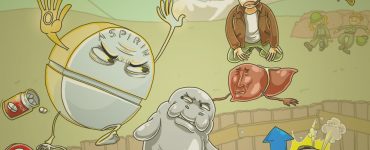Are you a nursing student dreading pharmacology? Does hearing the course name make you cringe? Then, you have come to the right place! Pharmacology is a challenging subject that can be overwhelming and anxiety-inducing for many healthcare students.
However, you can ace pharmacology like a pro with the right tools and strategies! To alleviate your anxiety, we pulled together a guide on how to study pharmacology in nursing school!
How to Pass Pharmacology in Nursing School
Pharmacology, although challenging, is a must-know in nursing school. To pass it, try out the following:
- Figure out your learning style: Are you a visual learner who likes diagrams and color-coded charts to organize information? Are you an auditory learner who likes to listen to videos or explain concepts aloud? Are you a verbal learner who grasps information by reading and writing it? Are you a kinesthetic learner that learns best by actively doing? Knowing your learning style can help you determine which study activities and resources will help you absorb and learn the material quickly. Your learning style will help you determine the best way to study pharmacology.
- Study at a time and place where you learn best: Pharmacology is challenging, and it will help to do the bulk of your studying when your brain can focus. Otherwise, you may have to spend additional time reviewing medications repetitively To be efficient, choose a time when you study best. If that is in the morning, block off time for pharmacology every morning. If you are a night owl like me, save your pharmacology studying for those late-night hours. For more efficiency, study in an environment conducive to your learning. You may enjoy being around your classmates, but if you spend 90% of your “study session” talking about an upcoming event, study groups may not be for you. You could also try studying independently in the same room as your classmates and asking questions when you get stuck on a concept. Finding what works for you is key.
- Use Picmonic to help you learn pharmacology: Picmonic is the ultimate study resource for nursing students because it covers thousands of pharmacology and nursing facts. Through picture mnemonics and unlimited quizzing, Picmonic walks you through how to learn pharmacology and remember medications! With Picmonic, you’ll have a personalized dashboard with customized study recommendations and daily quizzes with spaced repetition to maximize recall and retention. And since nursing students are always on the go, the Picmonic app is perfect for studying anytime, anywhere.
- Practice NCLEX-style questions: Memorization is key, but applying pharmacology concepts is when the real learning happens! Practicing NCLEX-style questions will help you contextualize what you’ve studied and view pharmacology through a clinical lens. It will reinforce your understanding and ultimately help you recognize medications and how they work in real-world situations. Overall, it will improve your clinical judgment skills and prepare you for any pharmacology exam. Feel free to follow our pharmacology study guide for nurses for extra practice too!
- Utilize your professors: When in doubt, ask your professors for help. Sometimes hitting the books and reviewing notes can be a lot. If you’re still struggling with a pharmacology concept or need advice from a pro, your best bet is to ask your professor. Prepare your list of questions and attend your professor’s office hours—they’ll be sure to clear up any confusion or offer advice on taking a different approach to remembering medications.
- Don’t give up! Ready to throw in the towel? Don’t! Sometimes all you need is a well-deserved break. Memorizing drugs and mastering pharmacology can be exhausting. If you’re feeling overwhelmed, take a deep breath and a step back. It’s okay to take a beat and come back to studying later. It’s all about balance.

At this point, you might be thinking, “Pharmacology is hard, and I have to understand how I learn best, but how do I memorize the drugs?” Well, let me tell you!
How to Memorize for Pharmacology
As a pharmacy student, I have aced some pharmacology exams and struggled with others. For the ones I aced, I used the strategies below. Here are key techniques for memorizing drugs fast! Hint: this is where Picmonic can help.
1. Study early. Study often.
There are A LOT of details in pharmacology. Don’t cram for these exams. They will seem overwhelming, and it will be hard to sort through all the details. Study a little bit each day or each day you have class. This makes studying manageable. The more you see a concept or fact, the more likely you’ll retain it. Studying and reviewing medications using Picmonic’s pharmacology mnemonics will help you achieve this!
2. Use different activities to summarize and supplement what you’ve learned.
Remember those learning styles we talked about? This is where they come into play. Choose activities that correspond to your primary learning style, and don’t be afraid to experiment with different methods too.
| Learning Style | Suggested Activity |
| Visual | Drawing diagrams or pictures can be used to understand which drugs fit in a class or the mechanism of action. |
| Visual/Auditory | Picmonic videos include mnemonic devices and visuals that make it easy to remember and recall information about medications. |
| Verbal | Charts and tables are a good way to summarize information and understand which drugs belong in a class and make it easy to notice key differences in side effects or administration. |
| Verbal | Making flashcards helps you summarize the most important things to know. Not everything deserves a flashcard. These flashcards can be used to quiz yourself later. |
| Verbal | Writing a drug class at the top and its suffix (ACE inhibitors -pril) below this write key information like the drugs in the class, mechanism of action, specifics about each drug like administration and side effects. |
| Verbal/Auditory | Take 5-10 minutes to study your notes on a specific topic. Once the time is up, write down everything you remember on a blank sheet of paper or white board. Check your answers with your notes and highlight things you missed. |
| Auditory | Being able to explain concepts to others is a true test of if you understand it. Challenge yourself more by seeing if you can explain in a way a 4th grader could understand. |
| Auditory | Listing all the drugs in a class, talking through mechanisms of action or recalling key side effects is a good way to see what you remember. |
| Visual/Verbal/Auditory | For example, emergency drugs to “lean” on in crisis are Lidocaine, Epinephrine, Atropine Sulfate, and Naloxone. Little phrases like this make it easy to recall. |
| Kinesthetic | If you learn a medication is administered subcutaneously. You can pretend to administer it each time you say it aloud or think about it. This way the medication and the action will be connected synonymous. Muscle memory can help during exams. |
| Kinesthetic | Look through textbooks or class notes to find examples where you can apply what you’ve learned. |
3. Quiz yourself!
The difference between step 2 and step 3 is that now you are completing these activities without notes. For example, try filling in a blank diagram or chart. Next, complete the quizzes associated with the Picmonic videos. Picmonic’s daily spaced repetition quiz, in particular, can help you retain information long term. The smart software algorithm helps you review with a quiz right before the forgetting curve sets in, allowing you to memorize the information and see it at spaced intervals. After quizzing yourself, ALWAYS evaluate what you know and don’t know. Spend time reviewing things you missed, and try again!
Understanding how you study best and using the right strategies will help you succeed in pharmacology. Not only will these strategies help you ace your pharmacology course, but they will help you retain the information for board exams and clinical practice. It’s never too early to prepare for life after school!
4. Break down medications by class
Memorizing medications is challenging simply because there are a vast amount of them! The best way to start memorizing medications is by breaking them down by class. First, start with the major drug classes. Think of ACE Inhibitors, steroids, antibiotics, and so on. Then, think of each medication within that class and its prefix or suffix. Following our list, that would be -pril, -ster–, -sulfa, and so on. This will help you identify medications you may not recognize at first. Finally, think about how each medication works in that class. This will help you begin piecing together medications, their class, and their effects.
5. Use mnemonics and acronyms
Mnemonics are handy memory tools to help you quickly memorize drug classes. Picture mnemonics are especially helpful as they activate different pathways in the brain to help you remember. More activated brain pathways equals stronger memory! That’s why Picmonic videos are great tools for memorizing pharmacology. With funny and memorable characters like Beta-Fish for Beta Blocker, Pencil-Villian for Penicillin, and Halo-poodle for Haloperidol, you can memorize just about everything you need.
Another good approach is to memorize the drug’s acronym. They’re shorter and easier to remember if you use flashcards too. For example, PCP for phencyclidine, E for ecstasy, and THC for cannabis.
6. Make flashcards
Use flashcards when on the go! They’re easy and convenient ways to review pharmacology information. Write the drug name or acronym on one side of the card, and on the other, write its class, generic name, indications, side effects, mechanism of action, major contraindications, patient education, and what you need to assess! PHEW, that was a lot! If you’re not a fan of a pile of notecards, use Anki flashcards (they pair perfectly with Picmonic!) to practice memorizing drugs and their information. You can quiz yourself with each flashcard, and make a pile of ones you do and don’t remember to review the ones you’ve struggled with.
For extra tips on how to memorize drugs in nursing school, read more.
Frequently Asked Questions (FAQs) about Nursing Pharmacology
Is studying pharmacology hard?
What do riding a bike, making the perfect pancake, and studying pharmacology all have in common? None of these things are easy the first time we try them. Learning something new is challenging. It’s uncharted territory. We don’t know if we’re doing it right, and it is incredibly uncomfortable. Being uncomfortable means you’re growing and building new knowledge. Long story short: pharmacology is tough, but you’re tougher!
Which is harder, anatomy or pharmacology?
Anatomy focuses on the bones, muscles, ligaments, tendons, and organs of the human body. It requires memorizing specific structures’ appearance, location, function, and connectivity. Understanding these elements requires diagrams and other visual elements. On the other hand, pharmacology focuses on specific medications, how they work, when they are used, how they are administered to patients, and the side effects they may cause. There are lots of medications and unique details to know about each. Both anatomy and pharmacology require memorizing a lot of information. Anatomy is highly visual, but pharmacology is not as visual. Knowing your learning style can determine if anatomy or pharmacology will be challenging for you.
Is there a lot of math in pharmacology?
Pharmacology classes may require you to memorize specific medication doses or calculate the dose for a patient. These calculations are simple and don’t require much math to complete.
What is the main goal of nursing pharmacology?
Pharmacology is critical for nursing! Without it, nurses wouldn’t be able to treat patients and promote their health safely. They need to identify and learn medications to address a patient’s needs and avoid fatal drug interactions. A nurse must follow the five rights of drug administration to treat patients properly.













